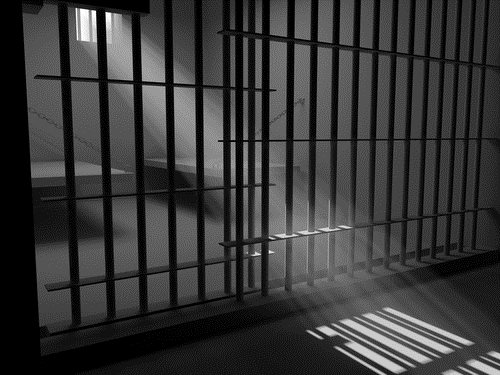‘Freedom’ is a common and hackneyed word on the lips of so-called ‘Christian nationalists‘.1 It echoes from pulpits. It simmers on social media. It entitles a rock-star worship leader like Sean Feucht to wander the United States like a patriot missionary, preaching the good news of civic freedom to his groupies, and singing a few worship songs so that we don’t forget that it’s a ‘Christian’ endeavour.
I think I can sum up the type of freedom being championed with the sentence, “I can do whatever I want and no one can stop me.” If I want to sit shirtless on my couch, watching ‘Quincy, M.E.’ and eating raw cookie dough, no one can stop me (especially not before Quincy reveals his theory on the latest case). If I want to belt out a tearful rendition of The Carpenters’ ‘Rainy Days and Mondays’ in the middle of my workplace staff room, no one can stop me. If I want to refuse a medical intervention because I don’t like the person recommending it and because of my imaginary degree in biochemistry, no one can stop me. And if I want to defy public ordinances, no one can stop me.

Funny thing, though — their diatribes make it all sound more like a prison than true freedom.
In the Big House
An illustration, if I may. For Renee and I, serving as international missionaries was a lot of things: the intrigue of living full-time in East Asia, the adventure of learning a new language and culture, the satisfaction of altering your lifestyle and thinking patterns, and more. Financially rewarding it was not. Most months, money was tight. Counterintuitively, though, I didn’t stress about finances. We learned to live as minimalists and we didn’t fret about monetary gains and losses.
Fast forward to the present, when we live in the prosperous West and hold middle class occupations. It seems like the more money we have in the bank, the more prone I become to worrying about it, about who might chip away at that cache, about how I hold on to it. Brad Pitt’s character in Fight Club was right: “The things you own end up owning you.”
Apply that same logic to civic freedom. Sure, we all appreciate having it and we’re privileged (generally through no action of our own) to live in nations where it’s granted to us. Yet in Christian nationalists’ rants about ‘freedom’, I mainly hear the perpetual fear that shadowy figures will take it away, perpetual anger at them for trying, and a perpetual preoccupation with ‘defending our rights and freedoms’. If your civic freedom warrants this kind of obsession, then you’re not free at all —you’re a slave.
The Right Kind of Slavery
In yet another example of ‘Christian nationalism’s’ woeful ignorance of actual Christianity, it’s worth noting that nowhere in the New Testament do either Jesus or the early writers promise us civic freedom. What’s more, nowhere do we find that we have a right to civic freedom, or even that we deserve it. Instead, we’re told to expect the following things: affliction (Jn. 16:33), trials and tribulation (I Pet. 3:14; 4:12), persecution and hatred (Lk. 6:22; 2 Tim. 3:12; Jn. 15:18-20; I Jn. 3:13) and a share in Christ’s sufferings (Phil. 1:29; I Pet. 4:13).
And how do we respond to these struggles? We’re instructed to rejoice in the face of persecution (Lk. 6:22-23; I Peter 4:12-14), to pray for and bless our persecutors (Mt. 5:44; Rom. 12:14), to stand and to endure (Eph. 6:13; Rev. 14:12-13), and to glorify God (I Pet. 4:16).
If that sounds like the opposite to what renowned ‘Christian nationalists’ are shouting, it is: Not sulking about how unfair the world is, but surrendering our expectation to be treated fairly. Not harbouring dreams of vengeance, but speaking blessing. Not clutching greedily at our rights and freedoms, but letting go of our obsession with them.
I’ve always been intrigued that, in Romans, Paul calls himself ‘a slave to Christ’.2 It strikes me that he discovered true freedom in enslaving himself to Jesus and his Way, that uniting with Christ and sharing in his mistreatment, his struggles and his pain is the path to being genuinely free. It’s the road out of bondage to our wants and our privileges and toward a surrendered life, one committed to something much higher. This is not an easy choice or an easy calling, but it is a liberating one: to escape the slavery of a self-interested fixation on civic freedom and to embrace the Way of the cross.
Notes:
1 I tend to put ‘Christian nationalists’ in inverted commas/quotes, because there’s nothing Christian about what they’re into.
2 It’s often translated ‘servant of Christ Jesus’, but this takes the power out “δοῦλος Χριστοῦ Ἰησοῦ”. ‘Slave’ is the more accurate translation.
image sources
- Quincy: The Movie Database
- Prison Bars: Huffington Post U.K.


Leave a Reply